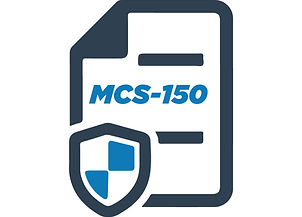SOLUTIONS
Keep your trucks on the road.
Let New Era manage your compliance.

PERMITS

Certificate of Insurance
Explore artwork that captures the subtle connections and meaningful gaps that define the human experience.

State Operating Authority TXDMV
New trucking companies have some important considerations to tackle when determining the requirements of the states in which they are operating.
If you plan only to carry loads only within your state, you may be required to obtain an intrastate operating authority, along with getting a federal DOT number.
Because regulations vary considerably from state to state, there are important considerations to determine the operating authority you will need. For example, the State of Texas requires companies trucking companies operating vehicles at specific weights to obtain a Texas state specific authority and number, other states have a completely different set of requirements, or in some state, none at all.
Obtaining the appropriate state operating authority is very important and can be complicated. Our Permits Specialists can help guide you through the process of getting it done right. Give us a call.

USDOT
A USDOT number is a unique identifier assigned to you by the Department of Transportation (DOT). This federally mandated number is used by the DOT/FMCSA as well as insurance companies and freight brokers to look up your company’s information and determine whether you’re in compliance.
Beyond the federal USDOT number requirements, some states have additional or different requirements. The experts at New Era Insurance personal can help determine what’s right for your situation

MCS-150 (Biennial Update)
The MCS-150 is a form that must be filed to obtain or update your USDOT number. It’s also referred to as the Motor Carrier Identification Report.
MCS-150 updates, or better known as biennial updates, are required every two years and are an essential part of the process of maintaining a valid USDOT number.
There are many reasons why trucking companies must stay current with these biennial updates, not the least of which is the possibility of being fined or put out-of-service for non-compliance.
An MCS-150 update is also required when a trucking company changes its address, company name, or operating authority.
Working with our Compliance Specialists, you’ll have access to a vast amount of experience and knowledge to help you navigate MCS-150 filings and updates, keeping your trucking business compliant and running successfully.

Motor Carrier/BOC-3
Carriers that transport freight across state lines for hire need a Motor Carrier Interstate Operating Authority which is represented by a Motor Carrier (MC) number. In order to activate your MC number, and be authorized to cross state lines, a BOC-3 form must be filed with the FMCSA. A BOC-3 designates a processing agent to serve as a legal presence in any state where you do business.
The process of activating your MC number can take 20-24 days, so it is important to work with our permits specialist to ensure the process is completed correctly.
Contact us if you need to haul freight across state lines.

IRS 2290 / Heavy Vehicle Use Tax (HVUT)
The Heavy Vehicle Use Tax (HVUT) is an annual tax levied by the IRS on vehicles operating on public highways at taxable gross weights of 55,000 pounds or more, regardless of whether they cross state lines or not.
Taxable gross weight is a combination of the unloaded weight of the vehicle plus the unloaded weight of any trailers used in combination with the vehicle plus the weight of the maximum load carried on the vehicle and any trailers used in combination with the vehicle.
In New Era will help you navigate the complexities, deadlines, and confusion associated with this tax and accompanying IRS Form 2290, or let you know if your company’s operations fall under one of the HVUT exemptions.

Oversize/Overweight Permits
Vehicles and loads that exceed legal size or weight limits need an oversize/overweight (OS/OW) permit and route from the TxDMV to travel on Texas roads.
Drugs & Alcohol Clearing House

The Federal Motor Carrier Administration (FMCSA) established the Commercial Driver’s License (CDL) Drug and Alcohol Clearinghouse (Clearinghouse). This new database contains information pertaining to violations of the U.S. Department of Transportation (DOT) controlled substances (drug) and alcohol testing program for holders of CDLs.
The Clearinghouse provides FMCSA and employers the necessary tools to identify drivers who are prohibited from operating a CMV based on DOT drug and alcohol program violations and ensure that such drivers receive the required evaluation and treatment before operating a CMV on public roads. Specifically, information maintained in the Clearinghouse enables employers to identify drivers who commit a drug or alcohol program violation while working for one employer, but who fail to subsequently inform another employer (as required by current regulations). Records of drug and alcohol program violations will remain in the Clearinghouse for five years, or until the driver has completed the return-to-duty process, whichever is later.

Beneficial Ownership Information Reporting
Effective January 1, 2024, many companies in the United States must report information about their beneficial owners—the individuals who ultimately own or control the company—to the Financial Crimes Enforcement Network (FinCEN), a bureau of the U.S. Department of the Treasury. Filing is simple, secure, and free of charge. Beneficial ownership information reporting is not an annual requirement. Unless a company needs to update or correct information, a report only needs to be submitted once.